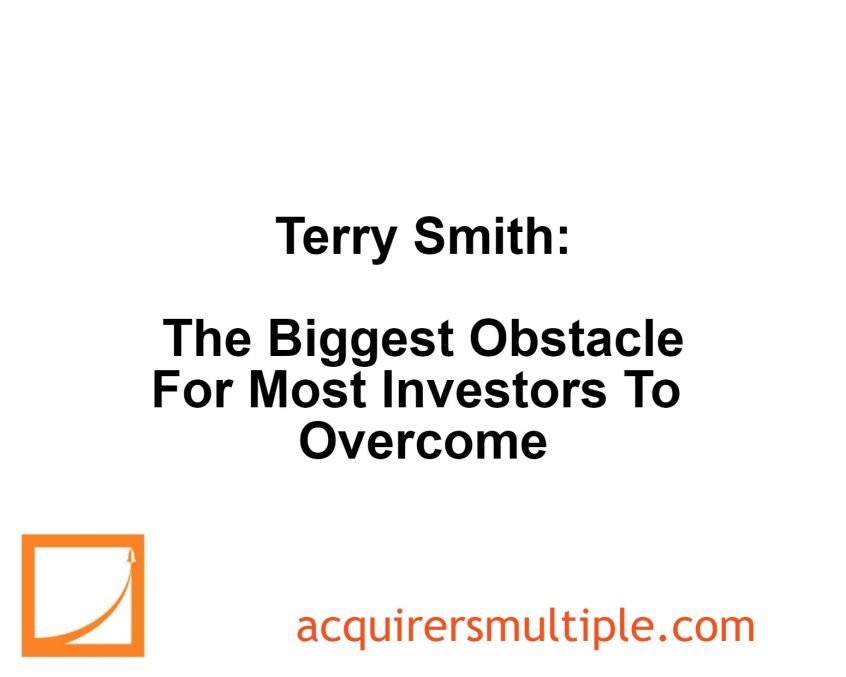In his 2017 Annual Letter, Terry Smith criticizes the overuse of quoting Warren Buffett by those who barely understand his strategies. Instead, he quotes Buffett’s partner, Charlie Munger, who asserts that long-term stock returns align with the business’s returns on capital.
Munger emphasizes that high returns on capital significantly impact share performance over time, more so than the purchase price. Smith agrees but highlights the challenge of maintaining a long-term perspective and identifying companies with sustainable high returns.
He stresses that the biggest obstacle to successful investing is investors’ inability to stay committed to long-term strategies during market fluctuations.
Here’s an excerpt from the book:
Quoting Warren Buffett, the ‘Sage of Omaha’ and arguably the best investor over the past fifty or so years, has in my view become somewhat passé. It is frequently done by acolytes or imitators, many of whom seem to have done only the most cursory study of what he actually does, if anything at all. So instead, I am going to quote his business partner and Berkshire Hathaway’s Vice Chairman, Charlie Munger:
“Over the long term, it’s hard for a stock to earn a much better return than the business which underlies it earns. If the business earns 6% on capital over 40 years and you hold it for that 40 years, you’re not going to make much different than a 6% return—even if you originally buy it at a huge discount. Conversely, if a business earns 18% on capital over 20 or 30 years, even if you pay an expensive looking price, you’ll end up with a fine result” (emphasis added).
I have no idea why Mr. Munger chose those particular rates of return, but what I do know is that he is not voicing an opinion. What he is describing is a mathematical certainty. If you invest for the long term in companies which can deliver high returns on capital, and which invest at least a significant portion of the cash flows they generate to earn similarly high returns, over time that has far more impact on the performance of the shares than the price you pay for them. Yet, I have been asked far more frequently whether a share, a strategy, or a fund is cheap or expensive than I am asked about what returns the companies involved deliver and whether they are good companies which create value or not.
Even though Mr. Munger is right, it requires a long-term investment perspective to capture that compounding by high return companies. Finding those companies is not easy, especially as you need to assess their ability to grow and ward off competition.
But the most difficult part of applying the investment strategy suggested by Mr. Munger’s quote, and which we seek to apply, is us: our inability to take a really long-term view, particularly through the periods when our chosen strategy and companies are not performing as well as less good companies, which are enjoying their period in the sun, is our greatest enemy.
You can find a copy of the letter here:
For all the latest news and podcasts, join our free newsletter here.
Don’t forget to check out our FREE Large Cap 1000 – Stock Screener, here at The Acquirer’s Multiple:



